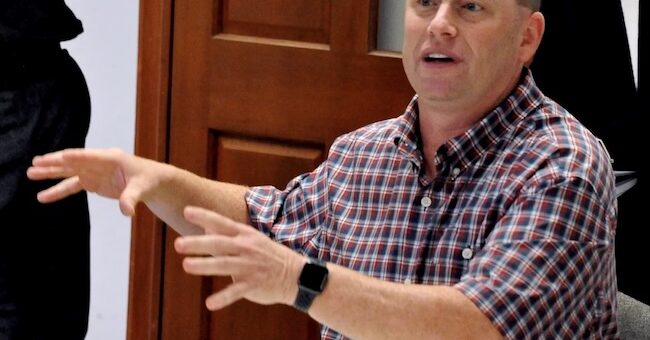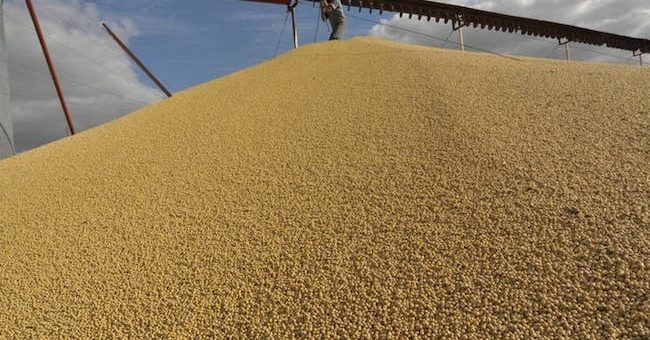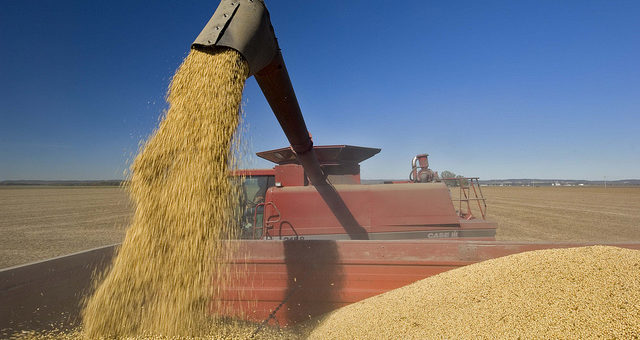Topping the list of ingredients vulnerable to fraud are grains and oilseeds, animal feed inputs, and spices and botanicals.
Read Article

Topping the list of ingredients vulnerable to fraud are grains and oilseeds, animal feed inputs, and spices and botanicals.
Read Article
In a shocking admission, an Argentine exporter of organic grains said his company had two levels of purity for organic grain exports: one for the European Union and other countries, and one for the United States.
Read Article
Despite the warnings, Lynn Clarkson, CEO of Clarkson Grain, doubts the USDA’s actions will be able to stop fraudulent organic shipments from West Africa or other regions outside the U.S.
Read Article
To pull off the scam, they involved corrupt laboratories to provide false test results and forged documents to support their claims.
Read Article
After pleading guilty to wire fraud in connection with an organic crops conspiracy, a Minnesota farmer must now pay the price.
Read Article
News releases suggest that James Wolf, 65, admitted to purchasing conventionally-farmed grains from a supplier and then reselling the grains labeled as organic.
Read Article
Court records state 48-year-old Mark Haines sold grain that he said was organic, when in fact it violated the USDA’s organic program.
Read Article
A second Minnesota farmer has been indicted on charges stemming from a $46 million fraud scheme.
Read Article
Two Dubai entities and several individuals were charged in a multimillion-dollar scheme to export non-organic grain into the U.S. to be sold as certified organic.
Read Article
Even though James Clayton Wolf’s organic farming certification was revoked in 2020, he continued selling non-GMO grain falsely labeled as organic through an “associate.”
Read Article
More fallout from the NYT investigation about fraud in the Indian organic cotton market.
Read Article
Similar to The Washington Post’s story a few years ago about fraudulent organic grains from Turkey and Ukraine, this article exposes just how easy it is for bad actors in India to manipulate the USDA’s antiquated and porous paper-based system. Here is the response to the NYT article from the Global Organic Textile Standard (GOTS).
Read Article
Because of the presence of ethylene oxide in organic sesame seeds, the EU has blacklisted five certifying agencies from India.
Read Article
A South Dakota man bought about $46 million worth of non-organic seed, sold it as organic for about $71 million and used the profits to buy a yacht, Florida home, jewelry, expensive vehicles and land, among other things.
Read Article
Through its own investigation, the Global Organic Textile Standard has obtained substantial evidence confirming rumors of systematic fraud of organic cotton production.
Read Article
A very unsettling development involving conventional raspberries repackaged as organic, having originated from China.
Read Article
The U.S. Attorney’s Office filed an indictment for wire fraud and money laundering against Kent Duane Anderson, alleging he used a network of South Dakota businesses to sell non-organic grain and seed products as organic.
Read Article
A profile of Randy Constant, an organic farmer who masterminded one of the biggest and longest-running frauds in the history of American agriculture.
Read Article
The Organic Trade Association’s Fiber Council is starting to promote its recently adopted ‘Best Labeling Practices for Textiles’ and its new ‘Organic Fraud Prevention Solutions’ program to the global textile sector.
Read Article
Miami Beach-based Truly Organic Inc. will pay $1.76 million for consumer refunds to settle a Federal Trade Commission complaint over deceptive advertising claims.
Read Article
To help fight fraud, the Organic Trade Association announced the development of three online training courses to bolster its Organic Fraud Prevention Solutions program.
Read Article
Poor organic branding and a lack of policing are two of the major challenges facing the organic industry in the APAC region today.
Read Article
OFARM’s former executive director John Bobbe and Cornucopia’s Anne Ross have joined forces to again impress upon the USDA’s National Organic Program that the import crisis is ongoing and that the agency has not done enough to stop it.
Read Article
Unlike the current method of detecting fraud, which focuses on pesticide residue, the new method focuses on the isotope signature.
Read Article